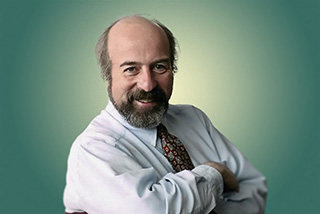John Groopman
Professor, Environmental Health & Engineering
Dr. Groopman joined the Center in 2024 as Affiliated Faculty. He is the Edyth H. Schoenrich Professor of Preventive Medicine at the Johns Hopkins Bloomberg School of Public Health and the Associate Director for Population Sciences at the Sidney Kimmel Comprehensive Cancer Center in the School of Medicine. His main research interests involve the development and application of molecular biomarkers of exposure, dose, and effect from environmental carcinogens, including those that occur in the diet. His research has emphasized the role of aflatoxins, which occur in the food supply, in liver cancer.
Dr. Groopman received his PhD from the Massachusetts Institute of Technology and was a postdoctoral fellow there, as well. He received further training as a staff fellow at the National Cancer Institute in the Laboratory of Human Carcinogenesis.
Before joining Johns Hopkins in 1989, Dr. Groopman was the Associate Dean at the Boston University School of Public Health. He has also served as a member of the National Advisory Council for the NIEHS and other committees at the national and international level. In recognition of his contributions to cancer prevention efforts, he received the 2010 American Association for Cancer Research – Prevent Cancer Foundation Award for Excellence in Cancer Prevention Research. He also gave the Ronald Herberman Memorial Lecture for National Cancer Prevention Day in 2016. In 2021, he was appointed to the National Academies of Sciences, Engineering, and Medicine - Committee on Toxicology.
Collectively, Dr. Groopman’s expertise involves the biological consequences of exposures to mycotoxins and other environmental contaminates on human health. His long-standing record of commitment to interdisciplinary and translational research in oncology and public health dovetails at the Center with his interest in how naturally occurring toxins accelerated by poor agricultural and animal management affect human health. His work on aflatoxin exemplifies this, and he’s looking forward to pursuing his interests in a wide array of foodborne toxicants through his work at the Center.
